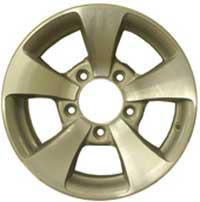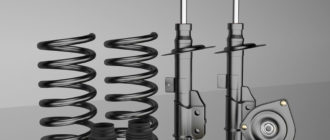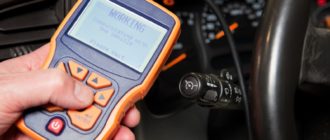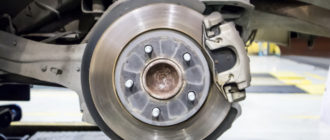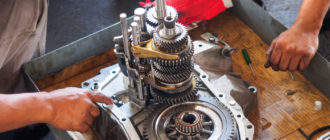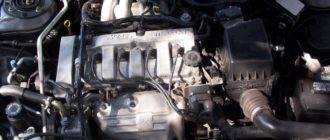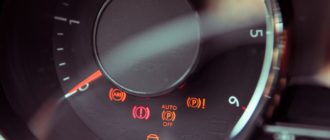When your car’s engine starts making weird noises, it can be a cause of concern. You might assume that there’s something wrong with the engine itself or a part in it. However, one of the most common reasons behind engine noise is blocked air filters.
When air filters get clogged with debris and dirt, they obstruct the flow of air into the engine. This, in turn, leads to a drop in engine performance and an increase in engine noise. The harder your engine works to suck in air, the louder it will be.
Most people tend to ignore air filters unless their car starts having trouble. However, staying vigilant about changing air filters is essential to maintaining the health of your engine. In this article, we’ll explore in detail the impact of blocked air filters on engine noise and why it’s important to keep them clean.

The Problem with Blocked Air Filters and Engine Noise
When it comes to the health of your car’s engine, air filters are an essential component for ensuring clean air intake. Blocked air filters can cause a range of problems, including decreased engine efficiency and increased noise levels. In fact, one of the most common culprits behind engine noise is a clogged air filter.
Over time, dust, dirt, and other debris can accumulate on the surface of the air filter, blocking the flow of air into the engine. When this happens, the engine has to work harder to maintain air intake, which can cause it to produce a loud, rumbling noise. If left unchecked, a clogged air filter can also lead to decreased fuel economy, reduced engine power, and even engine failure.
To avoid these problems, it’s important to regularly inspect and replace your car’s air filter. Most manufacturers recommend replacing air filters every 12,000 to 15,000 miles, or more frequently if you frequently drive on dirt roads or in dusty conditions. Keeping your air filters clean and free of debris can not only help reduce engine noise, but also prolong the lifespan of your vehicle’s engine.
- Benefits of Clean Air Filters:
- Improved engine efficiency
- Reduced engine noise
- Increased fuel economy
- Extended engine lifespan
Don’t let a clogged air filter be the reason behind your car’s annoying engine noise. Take proactive steps to ensure your air filters are clean and functioning properly to keep your engine running smoothly and quietly.
The Link Between Blocked Air Filters and Engine Noise
One of the most common culprits behind engine noise is a blocked air filter. Air filters play a crucial role in the performance of a vehicle’s engine by ensuring that clean air flows through it. Over time, these filters can become clogged with dirt and debris, preventing adequate air flow and causing the engine to work harder than necessary.
A blocked air filter can not only decrease engine performance but also lead to a variety of other issues. For example, it can cause excessive fuel consumption, which results in reduced fuel efficiency and increased emissions. Additionally, lack of air flow can cause the engine to overheat, which can lead to serious damage and failure.
Regular maintenance, including replacing air filters as recommended by the manufacturer, is necessary to prevent blocked air filters from causing engine issues. By ensuring that clean air is flowing through the engine, it can operate smoothly and efficiently, reducing noise and improving overall performance. Consider checking your air filter at least twice a year, or as recommended by your car’s manufacturer.
- Conclusion
Blocked air filters can be a major cause of engine noise and other problems. Regular maintenance, including replacing the air filter as recommended, can help prevent these issues and keep your engine running smoothly. If you notice any unusual noises or performance issues, consult a professional mechanic to diagnose and fix the problem.
Preventing Air Filter Blockages: Ways to Combat Engine Noise
A blocked air filter can cause numerous problems, including engine noise. The accumulation of dirt, debris, and contaminants prevents the air from flowing through it, reducing its effectiveness. Fortunately, preventing air filter blockages is relatively easy and simple.
- Regular Maintenance: Regularly changing the air filters is one of the most effective ways to prevent blockages. It is recommended that car owners change their filters at least once every 12,000 miles or every year. However, if you drive in dusty or dirty environments, you may need to replace your filters more frequently.
- Filter Inspection: Inspecting the filters periodically is also an effective way to prevent blockages. Look for dirt, debris, and other contaminants that have accumulated on the surface of the filter. A good rule of thumb is to replace the filter if debris is present on more than one-third of the surface.
- Air Filter Cleaning: Cleaning the air filter can also prevent blockages. However, you should be careful not to damage the filter or use too much water, as it can cause damage to the engine. Refer to your owner’s manual for specific instructions on how to clean your air filter.
- Quality Filters: Investing in high-quality filters can also prevent blockages. Quality filters are designed to prevent blockages and are often more effective than standard filters. They are also more durable, providing longer service life.
- Professional Inspection: Finally, it is always a good idea to have your air filters inspected by a professional. They can identify any problems or issues that may be causing blockages and recommend the best course of action.
By following these tips, you can prevent air filter blockages and combat engine noise effectively. Regular maintenance, filter inspection, cleaning, quality filters, and professional inspection can all help to ensure your filters work effectively, providing the best possible engine performance and reduced engine noise.
Engine Noise: Causes and Solutions
Engine noise can be caused by a variety of factors, one of which is blocked air filters. Indications of a blocked air filter include reduced airflow through the engine, decreased fuel economy, and poor acceleration. These symptoms can also be accompanied by a check engine light on the dashboard.
Blocked air filters can also lead to engine overheating, as the restricted airflow can cause the engine to work harder and generate more heat. In addition, a dirty air filter can allow dirt and debris to enter the engine, causing damage to internal components such as the pistons and cylinders.
The solution to a blocked air filter is simple – replace it with a new one. Depending on the make and model of your vehicle, this may be a simple task or one that requires professional assistance. It’s important to regularly check and replace air filters to avoid engine damage and ensure optimal performance.
- Regularly inspect air filters for signs of dirt and debris accumulation
- Replace air filters as recommended by the manufacturer
- Consider upgrading to a high-performance air filter for improved engine performance
Don’t let a blocked air filter lead to engine damage and poor performance. Stay vigilant and take the necessary steps to ensure your engine is running smoothly.
Replace Air Filters Timely to Prevent Engine Noise
Blocked air filters are often the culprits behind engine noise. Air filters, as their names suggest, filter out dirt, dust and other pollutants from the air that enters the engine. Over time, these filters can become clogged, reducing airflow and causing the engine to work harder than it needs to.
The harder the engine works, the louder it becomes, leading to engine noise. Additionally, a clogged air filter can cause a drop in fuel economy and increased emissions. These effects can be particularly pronounced if you ignore the situation, leading to bigger problems such as engine damage over time.
To avoid these problems, replace air filters in your vehicle every 12 months or 12,000 miles, whichever comes first. If you frequently drive in dusty or dirty environments, you should consider changing them more often. Regular filter changes will not only help prevent engine noise but can also improve overall engine performance and extend engine life.
- Benefits of timely filter replacement:
- Prevents engine noise
- Improves fuel economy
- Reduces emissions
- Extends engine life
Investing in timely air filter replacement is an easy and cost-effective way to ensure your engine runs smoothly and quietly. Don’t let a clogged air filter damage your engine and result in unnecessary repairs. Get in the habit of replacing the filter on time to enjoy a quieter and more efficient ride.
When the air filter is clogged, the engine is not getting enough air to operate properly. This can cause a decrease in performance, as well as an increase in noise as the engine works harder to compensate for the lack of air flow.
It's recommended that you replace your air filter every 12,000 to 15,000 miles, or once a year, whichever comes first. However, if you drive in dusty or dirty environments, you may need to replace it more frequently to prevent blockage.
Some common signs of a clogged air filter include decreased acceleration, reduced fuel efficiency, a dirty or dusty air filter, and a change in engine noise. If you notice any of these signs, it's important to have your air filter checked and replaced if necessary.
Yes, a dirty air filter can cause damage to your engine over time. As the engine works harder to compensate for the lack of air flow, it can cause excess wear and tear on other parts of the engine, such as the spark plugs or pistons.
The type of air filter that is best for your car will depend on the make and model. Most cars come with a standard paper air filter, but some aftermarket options include reusable cotton filters or performance air filters that provide increased air flow and engine performance.
The best way to prevent air filter blockage is to have your air filter checked and replaced regularly. Additionally, avoid driving in dusty or dirty environments as much as possible, and keep your car's engine clean and well-maintained.
If you notice unusual engine noises, such as rattling, grinding, or knocking, it's important to have your car examined by a mechanic as soon as possible. These noises could be a sign of a serious engine issue, such as a damaged or worn out part, which could lead to further damage if left unchecked.
